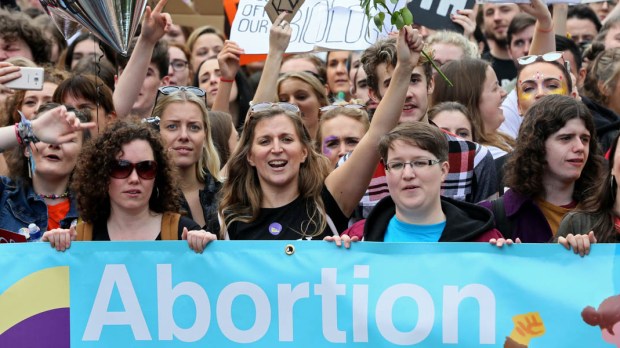The citizens of Ireland, who voted in 1983 to amend the national Constitution to protect the lives of unborn children, are now being urged to reverse that amendment and leave decisions about abortion law to the voters.
The Irish government announced last week that it will hold a referendum on the country’s pro-life eighth amendment, possibly this May. The eighth amendment to Ireland’s constitution protects equally the mother’s and the child’s right to life.
Prime Minister Leo Varadkar, who leads the center-right Fine Gael party, announced the referendum. Varadkar has been known as a pro-life politician, but said that he will campaign to change Irish law to allow unrestricted abortion up to 12 weeks of pregnancy.
That is one thing that puzzles people like Lisa O’Hare, media liaison for Human Life International in Ireland.
“Several other ministers appeared to have had a change of heart. They’re using words like ‘change of heart’ or ‘we’ve found the courage to come forward and support abortion rights,'” O’Hare said in an interview Tuesday. “It’s hardly courageous to target defenseless babies, stripping them of the right to life. These ministers changing their mind from one camp to the other for some unknown reason is certainly very worrying.”
“Politicians have been saying they have been on this ‘journey,'” added Bishop Kevin Doran of Elphin, head of the Irish bishops’ conference’s bioethics committee. “I suppose some would almost refer to it in the language of conversion. I don’t know how much that reflects the reality; I suppose we have to accept it at face value.”
Bishop Doran said that the campaign for more liberal abortion laws has focued on the “hard cases,” such as women who are raped or whose pregnancies put them in precarious life positions. “One of the things that has constantly been in the media over the past couple of years has been this idea that there are women who are expecting a baby who receive a diagnosis indicating that the baby has a life-limiting condition and may die before birth or shortly afterwards,” he said in an interview Wednesday. “That has been conflated in the media and some in the medical profession as the language of fatal fetal abnormality. The reality is that many of these conditions vary very much from one child or another. But the language being used almost conveys that that these babies are as good as dead, and therefore the question is being raised ‘Why are women being required to carry these babies to term, or alternatively, to go on this very difficult journey to England to have their pregnancy terminated there?'”
Abortion has been legal in Great Britain since 1967.
“The position the Church has taken is that there is no such thing as a useless life, that if we adopt the view that some lives can be defined as useless then it’s a way we can lose sight of the mystery of God’s intention for every human life, but we also in a way undermine the fundamental right to life for all of us,” Bishop Doran said in an interview. “So, rather than proposing abortion as a solution, we would argue that the state should be investing more resources for hospice care for parents in that situation.”
Besides, he pointed out, testimony given in a “citizens’ assembly” and a parliamentary committee (“Oireachtas”) set up to study the question of whether to hold a repeal referendum acknowledged that the vast majority of abortions by Irish women traveling to the U.K. “have nothing to do with these hard cases or rape or life-limiting conditions but are primarily socio-economic,” the bishop said. “So while hard cases are being used to soften up politicians’ views on abortion law, they in fact represent a very small minority of cases of Irish women going abroad.”
The bishop is also concerned about how the profession of medicine might be transformed if it is involved in abortion. One proposal is that abortions during the first 12 weeks of pregnancy be available through a service provided by family doctors, who would supervise the administration of abortion pills.
“What I’m concerned about is that the assumption being made that the medical profession, which is so much about protecting life and healing it, would suddenly turn around to become administrators of death,” he said. “And nobody seems to think that there would be anything strange about expecting the medical profession to be involved in a process which is so in conflict with the provision of healthcare.”
Said Human Life International’s O’Hare: “We have a huge housing crisis in Dublin, terrible suicide statistics among young people. There are so many issues that are so pressing in this country, the financial situation, that it’s difficult to ascertain where this push for abortion has come from.”

